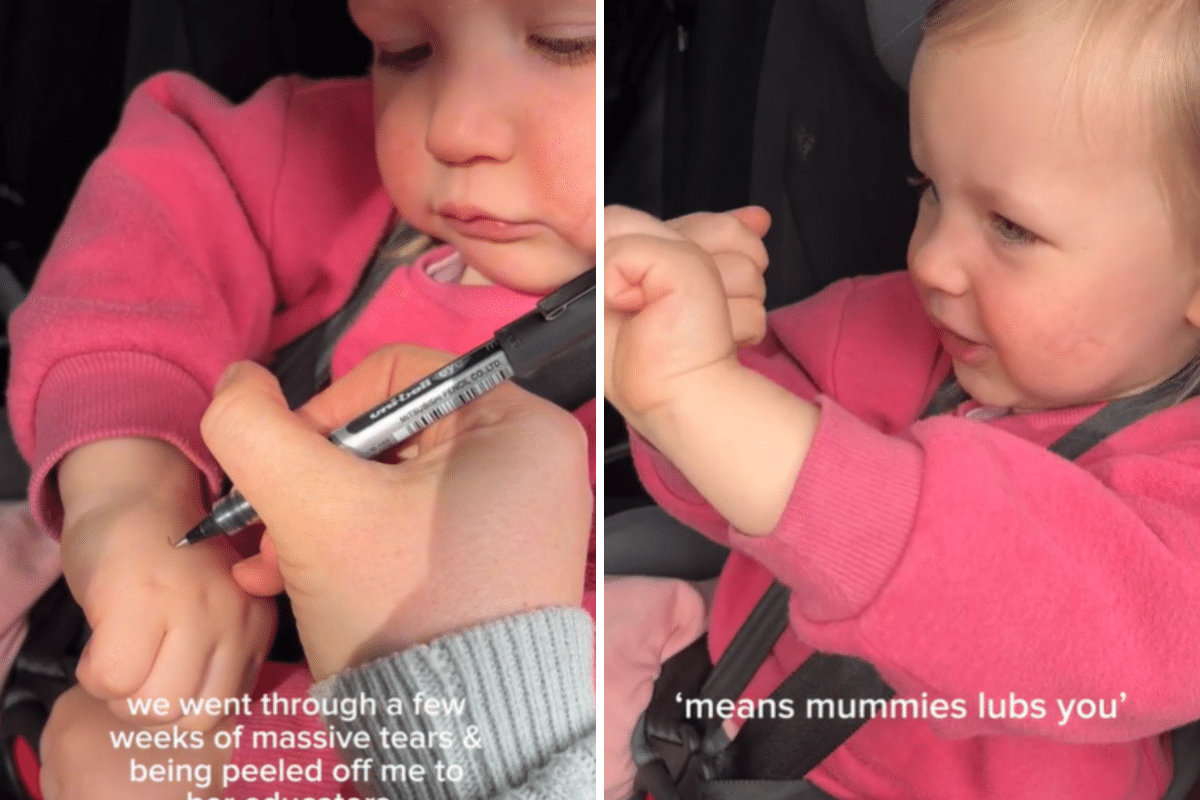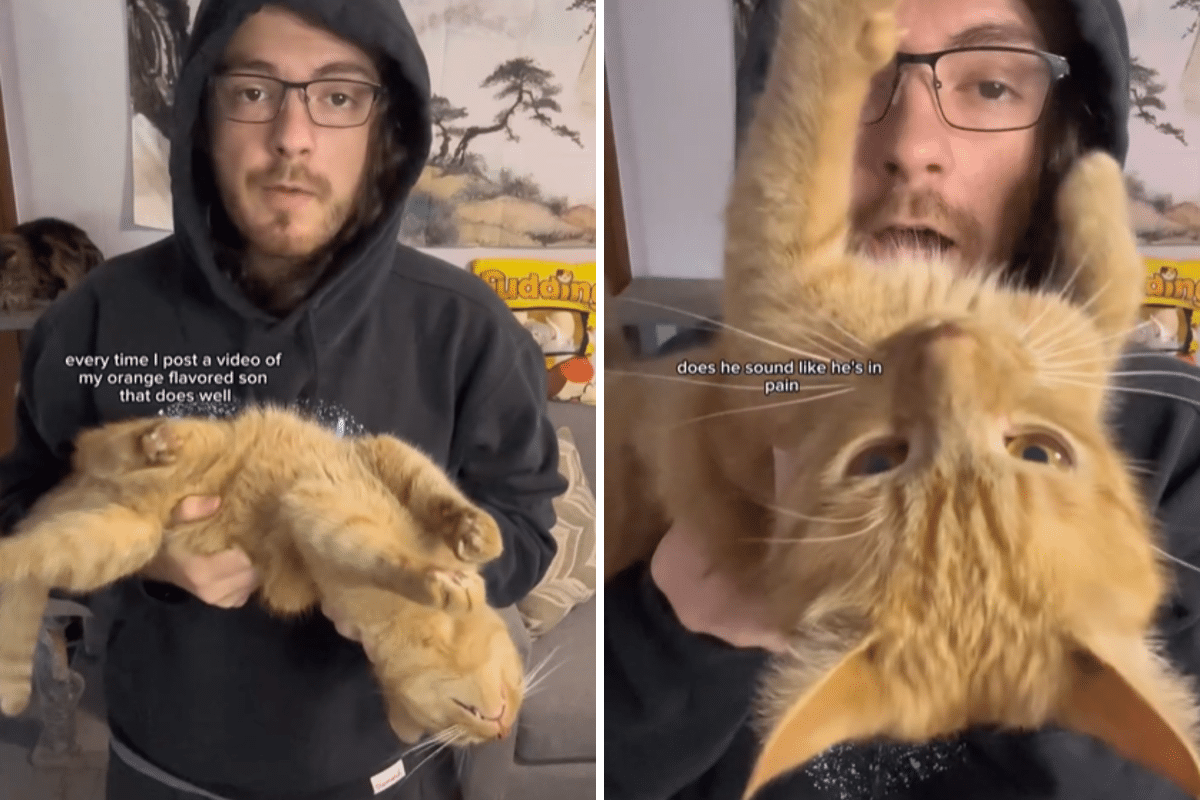A mom from South Australia is going viral on the internet after revealing a key parenting hack that makes school drop-offs smoother.
Kate, who asked Newsweek not publish her last name, shared in a clip on TikTok that her toddler started to hate it when she dropped her off for school.
According to the video, the pair went through weeks of tears and tantrums, and staff at Cece’s school had to literally “peel” Cece off her mom. “It broke my heart,” Kate wrote in the text overlay.

Pictures of Cece from the video. A clinical psychologist told Newsweek that children don’t tend to grasp the concept of love until they’re about six to eight-years-old.
@kate.n.h
In search of something to make the mornings easier, she decided to test the school drop off theory she’d heard on a podcast a few years earlier on her two-year-old.
Each day before mom and daughter set off for school, they draw something on each other’s hands, the idea being that they feel connected throughout the day, even though they’re apart.
They’ve drawn hearts, stars, smiley faces and her new favorite, a simple circle to represent a ball.
“I asked her what she wanted me to draw, and it’s evolved over time. This week she wanted frogs, [something] a little more challenging to draw,” Kate told Newsweek.
Kate’s clip has clocked up 8 million views and over a thousand comments since it was posted on September 11.
Some TikTok users shared what their parents used to do before they dropped their kids at school, like @spookytoriii: “My mommy used to spray her perfume inside my sleeve so when I was anxious I could smell her close to me.”
Another user commented that they’d recently read a post that said a child hates drop-offs because their home is wonderful, warm and safe. “Well done, mama,” they added.
Newsweek spoke to clinical psychologist Dr. Martha Deiros Collado, who called these drawings “love buttons” and explained how children need something physical to help them understand the idea of holding someone in mind when being physically apart.
“By drawing a little love button on yourself and on them, you create a visual representation of your connection—that thing adults call love,” she told Newsweek.
Dr. Deiros Collado, also the Sunday Times bestselling author of How to Be the Grown Up, advised parents to tell their children that when they’re thinking of them, they can press their love button, and they’ll feel it too.
“When you’re back together you can ask, ‘did you press your love button? I did it lots,’ which is the same as saying, ‘I was thinking of you today, did you think of me too?'” she said.
“As children get older, the love button may become matching bracelets, key rings or a photo. Even when children understand the concept of love, many feel comforted when they have something they can see and touch that connects them to you,” Dr. Deiros Collado said.
While some weeks can vary a little, Kate told Newsweek that Cece loves the activity and drop-offs have improved.
“It’s such a silly little gesture, but some days it makes the world of difference,” the mom wrote on her text overlay.









